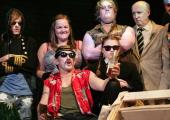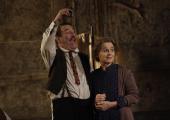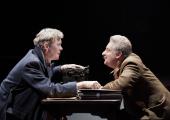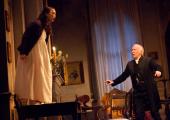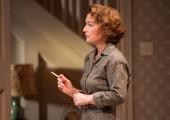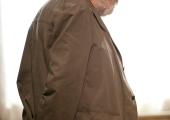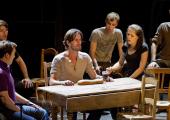2011: We Need To Talk About Grandage and Guvnors

Michael Grandage bade farewell at the Donmar, while Tilda Swinton once again scorched the screen
And what a year it was! Comedy was king on stages around town, while a variety of Shakespeare royals -- Richard III à deux courtesy Kevin Spacey and the lesser-known but far more electrifying Richard Clothier, Richard II in the memorably tremulous figure of Eddie Redmayne (pictured above) - kept the Bard alive, and how.

